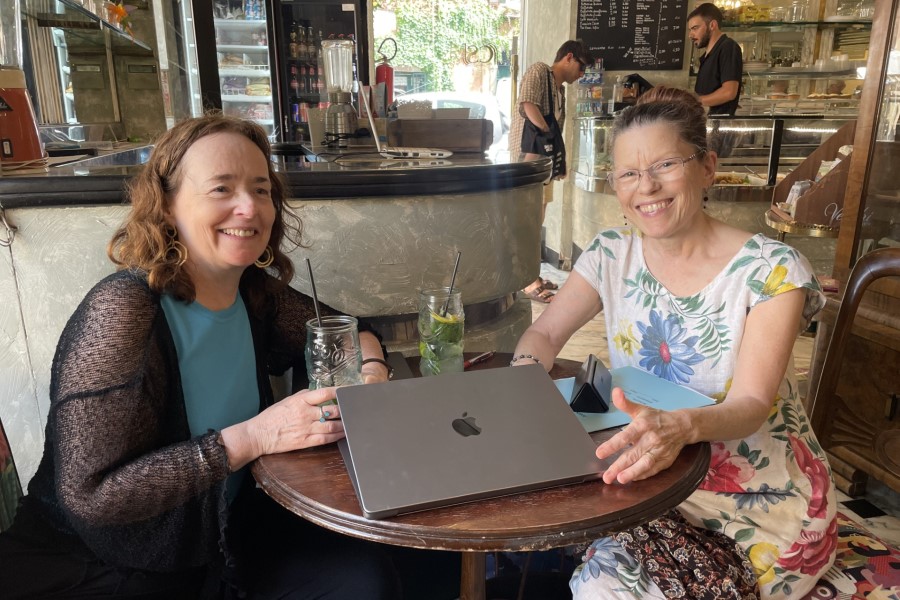Professor Eleonora Diamanti Edits Special Issue of Ethnologies Journal

Still image from “Guardians of the Night” (2018). Alexandrine Boudreault-Fournier and Eleonora Diamanti (dir.). Guantánamo, Cuba.
JCU Professor Eleonora Diamanti guest edited a special issue of the peer-reviewed journal Ethnologies with Dr. Alexandrine Boudreault-Fournier (University of Victoria) on the theme of “nocturnal ethnographies.” The issue, published in English and French, includes a preface by geographer Luc Gwiazdzinski (École nationale supérieure d’architecture de Toulouse), eleven articles by established and emergent scholars, and an afterword by the editors.
Professor Diamanti came up with the idea of publishing a special issue of Ethnologies around the theme of “nocturnal ethnographies” as a way to explore some of the questions that arose while she was doing ethnographic fieldwork at night in Cuba.
How do ethnographers conduct research at and about night? Are there specific sensibilities linked to the segment of the 24-hour cycle that emerge when night falls? What sort of imaginaries and aesthetics do the nocturnal hours invoke?
The responses that are gathered around these questions in the Ethnologies issue testify to the urgent need to address them, especially in a field – social sciences – that has been historically tied to diurnal practices and day-centered methods (such as observation and visual methods that are so deeply linked to light and clear vision). Moreover, the focus on the aesthetics and imaginaries of the night aims to bridge the social sciences and the humanities gap, in an attempt to enrich the discussion around sensory, creative, and interdisciplinary methods.
The articles in this issue reflect on how the imaginaries and the aesthetics of the night affect the work and methods of ethnographers, their fieldwork experiences, and their approaches. Such perspective recognizes the affective and performative dimension of the imaginaries of the night and the relational quality of its aesthetics.
In the afterword, titled “The Aesthetics and Imaginaries of the Night in Cuba: Bridging audiovisual ethnography and film studies,” Professor Diamanti reflects on her fieldwork in Eastern Cuba using sensory and audiovisual ethnographic methods in relation to film studies. The afterword argues for the emergence of an aesthetics of enchantment and an imaginary of disenchantment in experimental ethnographic and non-fiction films in/on Cuba pointing towards the affective dimension of nocturnal aesthetics, the performativity of cinematic imaginaries of the night and their political potential.
Read the full Ethnologies issue.





